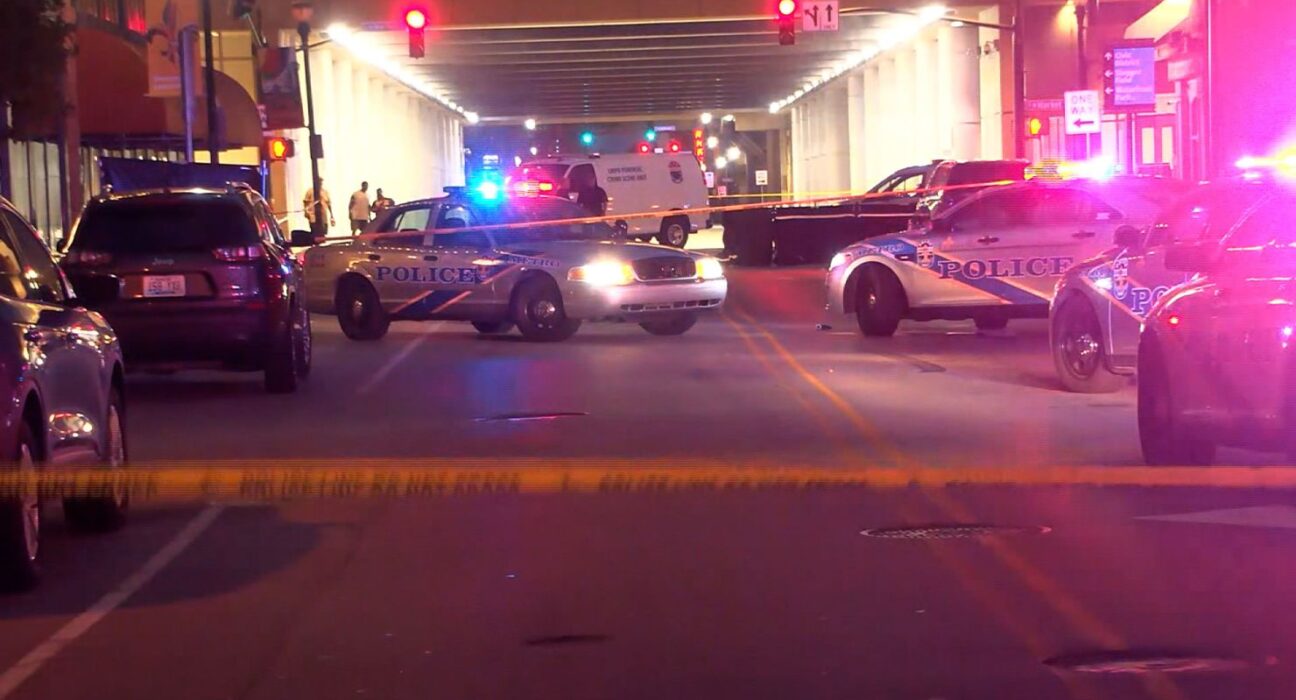Introduction to the Louisville Shooting
The city of Louisville was recently shaken by a tragic shooting incident that once again brought the spotlight on gun violence in America. In the wake of this heartbreaking event, it’s crucial to delve deeper into the complexities surrounding gun violence and its impact on communities and individuals, as well as explore potential solutions to address this pressing issue. Let’s take a closer look at the Louisville shooting and its broader implications for our society.
Statistics on Gun Violence in America
Gun violence in America is a complex issue that demands attention. According to statistics, the United States has one of the highest rates of gun-related deaths among developed countries. Each year, thousands of lives are lost due to shootings, with both mass shootings and everyday gun violence contributing to this alarming number.
The data shows that firearms are involved in a significant percentage of violent crimes in the country. From homicides to suicides, guns play a prominent role in these tragic incidents. The impact of gun violence extends beyond just fatalities; it also leads to injuries, trauma, and long-lasting psychological effects on survivors and their communities.
Despite efforts to address this problem through legislation and advocacy, the numbers continue to paint a grim picture. Policymakers, law enforcement agencies, healthcare providers, and communities need to work together towards finding effective solutions that prioritize public safety while respecting individual rights.
Factors Contributing to Gun Violence
Gun violence in America is a complex issue influenced by various factors. One significant factor contributing to gun violence is easy access to firearms. The abundance of guns, both legally and illegally obtained, increases the likelihood of violent incidents.
Socioeconomic disparities also play a role in gun violence. Communities facing poverty, unemployment, and lack of resources often experience higher rates of crime and violence. These conditions can breed desperation and fuel conflicts that escalate into shootings.
Social influences such as exposure to violence in media and cultural norms around resolving disputes with firearms can perpetuate a cycle of gun-related incidents. Additionally, inadequate mental health support and stigmas surrounding seeking help can lead individuals struggling with mental illness to resort to violent acts.
Furthermore, systemic issues like ineffective gun control laws contribute to the prevalence of shootings across the nation. Addressing these multifaceted factors is crucial in combatting the epidemic of gun violence plaguing American communities.
Effects of Gun Violence on Communities and Individuals
Gun violence casts a long shadow over both communities and individuals, leaving lasting scars that are not easily erased. For neighbourhoods plagued by gun violence, the sense of safety evaporates, replaced by fear and uncertainty. Children grow up in environments where they learn to navigate life while constantly looking over their shoulders.
Families shattered by gun violence experience profound grief and trauma that reverberate for years to come. The loss of loved ones leaves an indelible mark on those left behind, with emotional wounds that may never fully heal. Survivors often grapple with PTSD and other mental health challenges as they try to piece their lives back together.
The economic impact of gun violence is also significant, as businesses flee high-crime areas and property values plummet. This creates a cycle of disinvestment that further marginalizes already vulnerable communities. Gun violence does not discriminate; its effects ripple through society, touching everyone in its path.
Current Gun Control Laws in America
Gun control laws in America vary from state to state, leading to a patchwork of regulations across the country. The Second Amendment of the U.S.
S. Constitution guarantees the right to bear arms, but it has sparked ongoing debates about the balance between individual rights and public safety.
Federal law prohibits certain individuals, like convicted felons and domestic abusers, from owning firearms. Background checks are required for purchases from licensed dealers, but private sales often bypass this requirement. Some states have enacted stricter measures, such as waiting periods and bans on assault weapons.
The lack of uniformity in gun laws makes it challenging to address gun violence effectively on a national level. Advocates for gun control push for comprehensive legislation that includes closing loopholes and implementing stricter background checks nationwide.
Debates surrounding gun control continue as policymakers grapple with finding solutions that protect both constitutional rights and public safety alike.
Proposed Solutions for Reducing Gun Violence
Addressing the issue of gun violence in America requires a multifaceted approach that involves both legislative measures and community-based initiatives. One proposed solution is to implement universal background checks for all firearm purchases, closing loopholes that currently allow some individuals to acquire guns without proper screening.
Another strategy is to enhance mental health services and support systems, providing timely intervention and treatment for those at risk of harming themselves or others. Additionally, imposing stricter regulations on the sale and ownership of firearms, such as limiting magazine capacities and banning assault weapons, can help reduce the lethality of mass shootings.
Investing in conflict resolution programs, youth outreach efforts and education on responsible gun ownership are also crucial steps towards mitigating gun violence. By fostering a culture of safety and accountability surrounding firearms, we can work towards creating safer communities for everyone.
The Role of Mental Health in Addressing Gun Violence
The role of mental health in addressing gun violence is a complex and critical aspect that cannot be overlooked. Individuals who perpetrate acts of violence often have underlying mental health issues that go untreated or undetected. It’s essential to prioritize access to mental health services and resources for those at risk of engaging in violent behaviour.
Mental health professionals play a crucial role in identifying warning signs, providing support, and intervening before situations escalate into tragedies. Early intervention and proper treatment can help prevent individuals from resorting to violence as a means of coping with their struggles.
Addressing the stigma surrounding mental illness is also vital in creating a society where individuals feel comfortable seeking help without fear of judgment or discrimination. By promoting understanding and empathy, we can work towards reducing the impact of untreated mental health conditions on gun violence incidents.
Conclusion and Call to Action
Gun violence is a complex issue that requires a multifaceted approach to address. The recent Louisville shooting serves as a stark reminder of the devastating impact of gun violence on communities and individuals across America.
As we reflect on the statistics, factors contributing to gun violence, current laws, proposed solutions, and the role of mental health in addressing this issue, it becomes clear that there is no one-size-fits-all solution. It will take collaboration between policymakers, law enforcement agencies, mental health professionals, community organizations, and individuals to make meaningful progress towards reducing gun violence.
We must continue advocating for comprehensive gun control measures while also addressing the underlying social determinants that contribute to violence. Education, access to mental health resources, community engagement initiatives, and responsible firearm ownership practices all play crucial roles in creating safer environments for everyone.
Let us not wait for another tragedy like the Louisville shooting to spur action. We must collectively work towards creating a society where every individual can live without fear of gun violence. Together, we can make a difference by promoting dialogue, supporting evidence-based policies,
and fostering a culture of safety and respect within our communities. Only then can we truly begin to see a reduction in gun-related tragedies and create a brighter future for generations to come?








Leave feedback about this